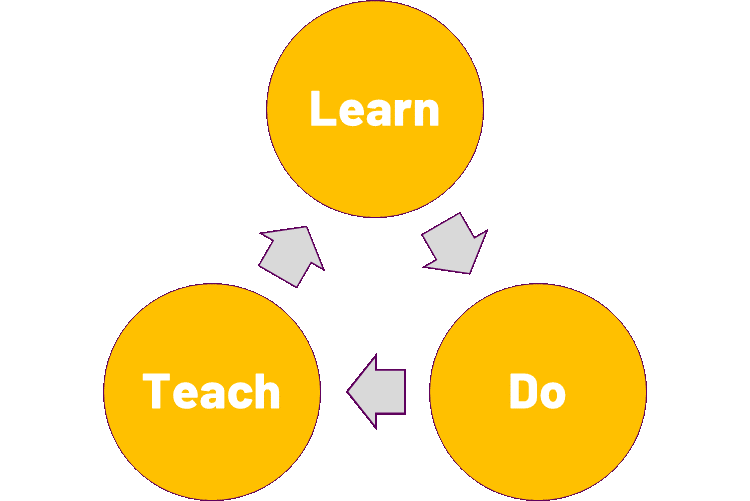Shark Tank India is an Indian business reality television series aired on SET India. The show shows entrepreneurs presenting their business plans to investors and sharks who decide whether or not to invest.
Shark Tank India season 1 featured some amazing entrepreneurs who entertained us with their engaging presentations and gave us many tips for success in a career after MBA.
Following all the hype surrounding Shark Tank India, I started watching it a month ago. In no time, it became a part of my daily routine. By watching the show, not only do you get entertained but you also learn a lot of valuable lessons that would be helpful in your career after MBA.
The show's investors have always been loud about how people of various professions add value to the business world, for instance, Peyush Bansal's comment about chartered accountants.
There was one more such interesting conversation recently between the Shark Tank India judges as the season 1 came to a close.
Ashneer Grover MD and co-founder of BharatPe and Peyush Bansal founder & CEO of lenskart.com had just invested in a team of two entrepreneurs.
Clearly impressed by the both of them, Peyush and Ashneer has the following conversation:
Peyush: Why don’t we find such people when we go to hire??
Ashneer: You’ll find such people only when the market falls. In today’s time, any good professional has aspirations to become an entrepreneur
Aman Gupta co-founder of Boat comes in.
Aman: I told you this morning, such people want to be entrepreneurs
Peyush: We don’t find such people at all when hiring (re-iterates)
Aman: Yes, you won’t find such smart people while hiring
Ashneer: You’ll find only nerds
Peyush: Correct
What do you learn from this conversation?
From this seemingly unremarkable conversation, I will discuss three important takeaways that will help you increase your chances of landing a lucrative career after MBA.
These lessons might help clarify some of your misconceptions about what the best MBA outcome is. You could use these life lessons to have a successful career after MBA.
Takeaway #1 - Academic excellence may not translate to a successful career after MBA
Ashneer Grover said in the beginning of the conversation that the industry is filled with nerds.
When you go to a B-school and focus only on grades, marks, and placements, you will not serve yourself well.
Why do I say this?
You should understand that an MBA is more than just a degree or a certificate. If you want to see the best results and have a lucrative career after MBA, you should look beyond grades.
If you adopt an academic mindset in a business school and focus only on bookish knowledge, you will miss out on the practical application of that knowledge. And it is likely that your lack of knowledge will show up in your placement interviews when the interviewers ask about the practical aspect of the skill.
Do I mean that you need to completely forget about your grades when I say all this? Of course not.
So, what is the right path to follow?
It is important to learn any concept or skill in such a way that you not only learn it for the exams or grades but for life. This requires you to follow a universal principle of Learn>>Do>>Teach.
In order to achieve success in your career after your MBA, you must learn how to think like a practitioner and not as a student. This is what I will talk about further in detail.
Takeaway #2 - Don't just be a student, be a practitioner
you might have seen that when entrepreneurs on the show talk too bookish or flaunt degrees - its doesn't go down well with the sharks
Neither Peyush nor Ashneer was impressed by the entrepreneurs because they had good grades but because they had experience with what they were talking about. They weren't talking bookish terms, they were describing facts that are based on real-life experience.
For you to have the same mindset and knowledge just like the above entrepreneurs you need to think like a practitioner.
How do you become a practitioner from being a student?
The principle Learn>>Do>>Teach is the only requisite for this.
Learn >> Do >> Teach – The Universal Principle

The first thing you want to do is learn the basics of any skill which you want to learn.
With your learning, you must apply those concepts to internships and freelancing assignments. In this way, you will gain monetary incentives for the skill you are learning and then you would be motivated to master the skill.
I’m sure you’re wondering how I can get an internship or a freelance job. For that, It’s important to leverage your college’s brand.
Organizations and leaders around the world appreciate working with Indian students,particularly if they are from a top B-school.
Once you have mastered a skill and have implemented it, you should document your learning on a blog.
Importance of Personal Branding for MBA students – Your Marketing Experiments Lab
Nowadays, Personal Branding is one of the most sought-after techniques to establish yourself in the online world. And blogging is a great way to do that.
Therefore, MBA students should start blogging. The blog can be on your name (say, darpansaxena.com), and you can write about anything that you learn. In this way, you are not only learning that skill efficiently but also documenting it and teaching others about it.
Eventually, you will not realize it, but you will have a marketing experiment lab in the form of your blog.
The marketing experiments lab will allow you to practice various digital skills like SEO, Facebook ads, Google ads, email marketing, etc.
As a matter of fact, organizations are currently highly valuing MBA graduates with these digital skills, etc.
So, now as you have your own blog, just like the entrepreneurs on Shark tank India have products to speak on their behalf, you would have your blog as your portfolio of work.
In my course, Five Steps Ahead, I teach you exactly this. That is, how to learn and practice various skills during your MBA, apply them on your blog (I help you start it) and become a well-paid practitioner.
This course for MBA placements is a one-stop destination for having a long-lasting lucrative career after MBA, a career in which you are independent and
From here, I will take you to the last and the most important takeaway from the show.
Takeaway #3 - It is not necessary to rely solely on placements
If you feel that you can get the best career outcomes and your B-school’s placement will not do justice to you - then this course is for you. Or, even you have kickass placements happening at your B-schools but are interested in exploring the following options:
Off-campus placements
Freelancing and Global Consulting - the Freedom Lifestyle
Digital Entrepreneurship
Then, I am talking to you.
Here’s the thing. I did my MBA from IIM Udaipur. And how my MBA started is not the same as how it ended.
Why do I say so?
I used to stammer severely, and in my B-school interviews, I used to scribble my answers on A-4 sheets instead of speaking them out.
Yet, against all these odds, I managed to transform from someone who was under confident and worried about his placements because of his speech problem to someone who had his blog go viral among all MBA students and someone who had three job offers from outside the campus even before placements started at my college.
If you are also someone who has restricted yourself to placements alone, thereby missing out on a wealth of opportunities that go beyond placements, you need to re-think.
Have you ever wondered what these opportunities other than placements are?
You can get amazing job offers off-campus. Should you give up the chance to participate in a specific XYZ company because it isn't coming to your campus? Certainly not.
You can also get freelancing projects from clients across the world. International leaders and organizations are eager to work with Indian graduates, especially from top B-schools like IIMs and XLRIs, though only if you give yourself a chance.
Furthermore, you need a side hustle to complement your B-school journey. It should be something you are passionate about and which distinguishes you from other students.
Moreover, this side hustle helps you practice your skills more effectively.
This side business could replace your work with the proper understanding and execution, allowing you to build your brand while creating your journey and having the best career after MBA
Our course for MBA placements and the best career outcomes for students covers it all.
You can have the best career after MBA
Shark Tank India featured a number of great entrepreneurs who managed to raise high investment for their startups. This was possible because they were not nerds, but instead practitioners.
Trust me when I say that the industry desperately needs talented people with experience who have struggled and learned new skills not only through books or from professors but also have applied those skills in real life.
This is where the Learn>>Do>>Teach principle comes into play.
Finally, if you are able to implement the three takeaways into your life, you will surely succeed in your career after MBA.






